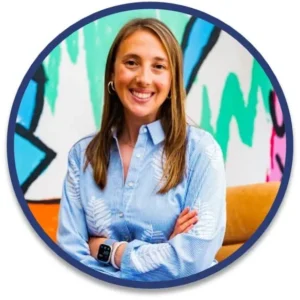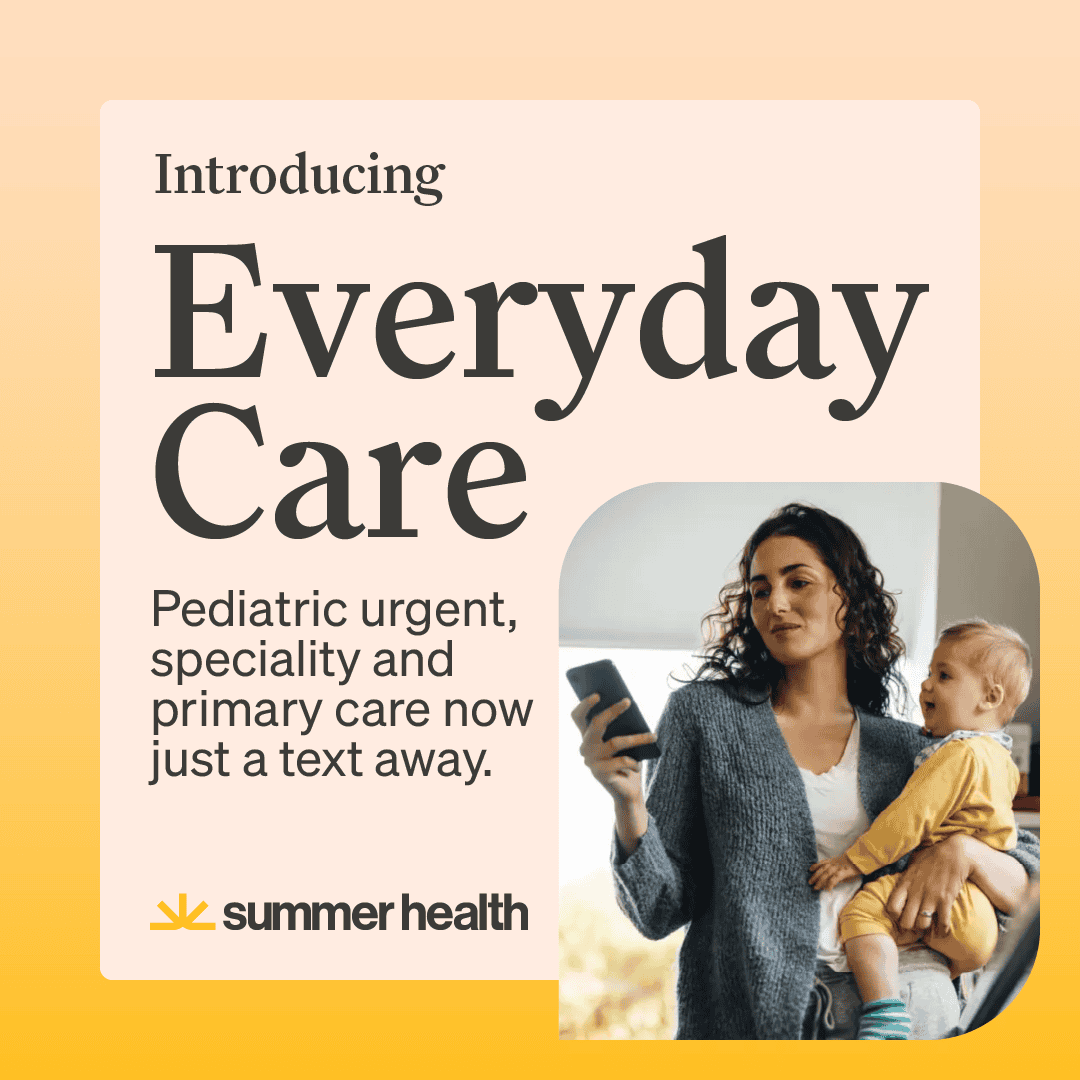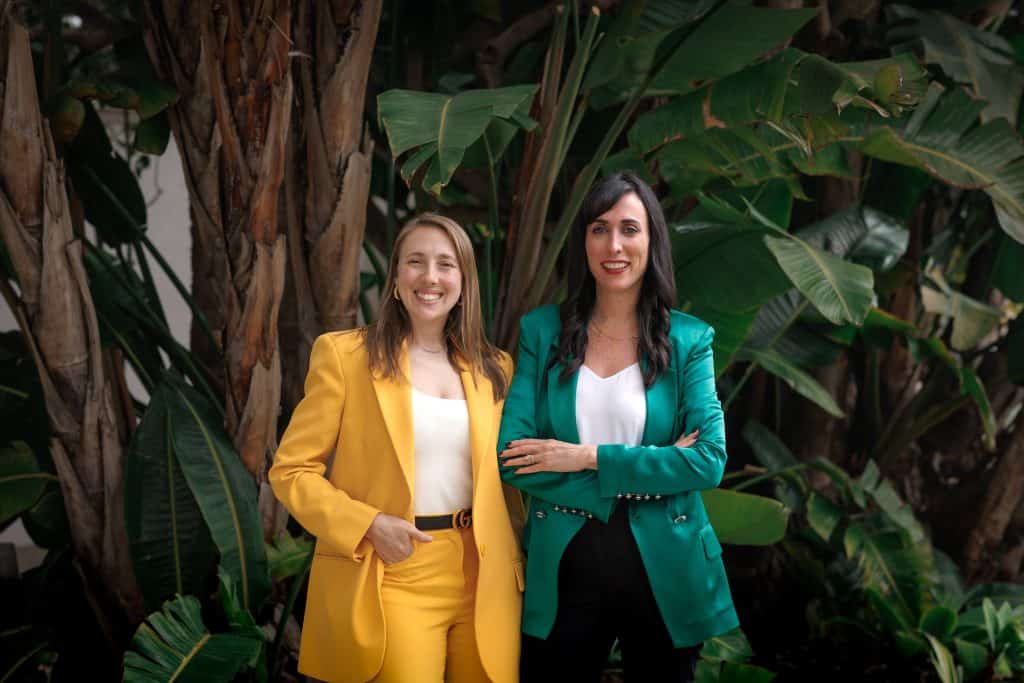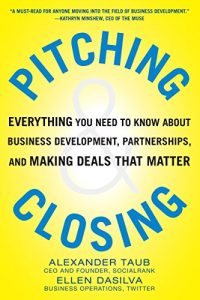Perspectives
7wireVentures Presents: Top of the Ladder Featuring Summer Health Founder and CEO Ellen DaSilva

Ellen DaSilva is the Founder and CEO of Summer Health. Summer Health is a consumer-first, longitudinal pediatric care platform that leverages convenient text-based care and LLMs to efficiently meet the health needs of families and children nationwide and 24/7. Founded in 2022, Summer Health was inspired by Ellen’s own difficulties trying to find timely medical advice and care for her three young children. Through radically simplifying access to high-quality care through an on-demand text-first platform, Summer Health presents families and healthcare stakeholders with a meaningful value story.
Prior to Summer Health, Ellen was an early employee at Hims & Hers, where she joined as the eighth employee, serving as the Head of Strategic Partnerships and supporting the business through IPO. Ellen also served as a Business Operations leader at Twitter, where she implemented key initiatives to scale annual revenue from $100M to $2B.
We connected with Ellen to learn more about her childhood aspirations, the company’s exciting partnership with OpenAI, how the business is working to disrupt the status quo pediatric care journey, and much more in our latest Top of the Ladder feature.
When you were a child, what did you want to be when you grew up?

In first grade, like most American children, we had “career” day in school. At the end of a day of listening to parents in the community talk about their jobs, my 6-year-old classmates and I sat in a circle and shared what we wanted to be when we grew up. Most of my peers expressed that they wanted to be a fireman or a ballerina or something, but I proudly announced that I intended to be the CEO of the Coca Cola company. I had never even had soda! But I knew that I wanted to run an iconic American institution, I just didn’t realize I was going to be building it.
What does your morning routine look like?
I have 3 kids under 5, so it won’t come as a surprise that my morning isn’t really about me. My husband and I get up early and work out. By the time we get upstairs, the kids are usually just waking up. We spend time with them talking about the day ahead, making breakfast, and getting ready quickly. Then we each take one of the kids to school and race into work. My fun fact is that I’ve never had coffee, so if you see me with a warm beverage in tow in the morning, it’s almost always hot chocolate.
From your professional background, it’s clear that you have a passion for building and scaling consumer-first technologies. What learnings from your roles at Twitter and Hims & Hers do you feel could be applied to Summer Health?
I’m obsessed with the idea that healthcare is the most fundamental consumer experience. It’s our bodies! What could be more consumer than that?
At Twitter, I learned about how valuable pithy, concise and public communication can be. A product where we can all learn from one another in written, short-form communication is my love language. I still value the product very much and have modeled much of the modality of communication around my experience working on that product.
At Hims & Hers, I learned the value of creating a trustworthy brand that people want to be associated with. How many people can say that about their health system or their doctor? Summer Health is here to symbolize a genuine connection, excellent quality, and a high standard of helpful care.
51 percent of people in the United States live in a child care desert and the nearly 50 percent of children on CHIP have the most difficulty accessing convenient and timely care. What are ways digital health can address these pervasive gaps in our nation’s pediatric care infrastructure?

I could talk about this endlessly. I’m here because I want to stand up for the families who have a gap in access to care. I believe that all children should be given the gift of access to health equally – it’s a fundamental right, and these people are our future. Technology can solve so many problems: for the family who lives 2 hours away from the closest urgent care, and doesn’t want to have to schlep their child to the ER; for the family who has parents working multiple jobs and would have to lose wages over taking their child to the doctor; for the family who only has access to adult doctors because there’s no local pediatrician, mostly because 61% of pediatricians are burnt out. These are all acute problems facing 39M+ children in this country and 10s of thousands of providers. You can only imagine what the cascading effects are on their health as they age.
When you envisioned the business, providing families with immediate access to always-on urgent care was the focus. Since then, the company has expanded to provide more longitudinal, specialty care. What spurred this expansion and what impact do you see this having in how Summer Health can support children along their care journeys?

At Summer Health, we are customer obsessed. I spend all of my time talking to parents about what they want from their family’s care journey, and how we can improve their experience. It became clear based on extensive customer feedback and looking at the parent journey that what parents were craving was a more relationship-based approach to care. The speed of response is an important component to why parents love and trust our platform, but it’s not the only vector. We realized that we could differentiate ourselves and generate more trust with our families by ensuring that they built a relationship with a provider – a much closer simulation to what happens in “real world” forms of care.
Summer Health was one of the few early-stage companies to sign a BAA with OpenAI last year to integrate Generative AI functionality into the platform. Can you share a bit more about this landmark partnership and any guidance you might have to other healthcare leaders who are reticent about implementing the technology into their systems and products?

We feel so fortunate to have friends and supporters at OpenAI who helped us become one of the first healthcare services companies to work with them. I believe the advent of AI is here to stay, and so my advice to anyone in the healthcare space is to find ways to include it in your daily routine. For us at Summer Health, AI isn’t about replacing providers or giving a generic, computer-driven experience. Rather, we use it to provide superpowers to our pediatricians. There are so many ways to imbue AI into your business that don’t touch the patient directly and we see an ever-increasing number of use cases for our partnership.
We are proud to have led Summer Health’s recent Series A financing round! Can you share a bit about what excites you about the future of the company and what users can expect in the coming months?

The honor is ours! Alyssa Jaffee, the partner we work with most closely, has been intimately involved in the business since the start. Alyssa has been a trusted supporter of Summer Health since before we launched: by sharing product feedback, making helpful suggestions about go-to-market strategy, and providing wisdom about what she was seeing in the healthcare landscape, Alyssa proved that she cares deeply about what we are building. When my co-founder, Matthew Woo, and I started spending time with the 7wireVentures team, it became clear that they could help us in a multitude of ways, including by helping shape our expansion from D2C to B2B channels. The level of sophistication and expertise on the 7wire team in the healthcare space in unparalleled, and we wanted to work with the best.
What is your superpower?

I love this question because I ask this of every candidate I bring in to interview with the company. My superpower is that I can look in your fridge and tell you a multi-course meal that you can make with the random ingredients sitting in it. I love to cook, so this is always a fun challenge for me. Metaphorically speaking, I can bring chaos into order and have a distinct ability to pattern match to find the solution. I don’t need a set course or a roadmap (or a recipe book) to figure it out.
What book are you reading right now?

People probably wonder “who reads classic literature other than when in high school English class?” The answer is me! I love it! I’m currently reading “The U.S.A. Trilogy” by John Dos Pasos and doing my annual June re-reading of “The Great Gatsby” by F. Scott Fitzgerald (“do you always watch for the longest day of the year and then miss it?”)
Given the massive influx of digital health solutions in the market today, many startup leaders are navigating a more discerning buyer market. With that context, we’d be remiss not to mention your book, Pitching & Closing: Everything You Need To Know About Business Development, Partnerships, and Making Deals that Matter. In the book you highlight quite a few pieces of actionable advice for leaders, from how to craft the perfect pitch to conducting effective negotiations. If readers could take away only three key lessons from your book, what would you want them to be?

There is so much I would love to update in that book now that it’s 10 years old (!!!) but my best advice is to listen more than you speak. The best pitches are actually done when you enter a room, ask a question of the audience, and let them tell you what they are looking for. That way, you can tailor your approach for success.
My second piece of advice is to find the champion and quickly get to know them. Go meet them in person! Take them for dinner! Large deals require someone on the other end to act as an extension of your team inside their organization, and you want them to feel bought it.
Finally, regarding negotiations: the goal of negotiations in a partnership isn’t to make one side writhe in pain while the other emerges victorious. This is a multi-round game and you have to continue to work together. Make concessions appropriately and invest in the relationship, because this is going to be for the long term.